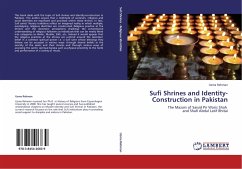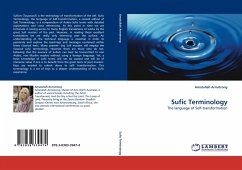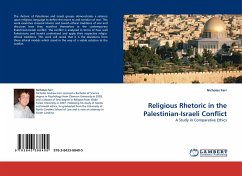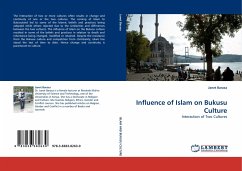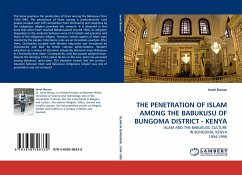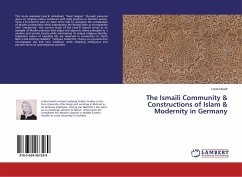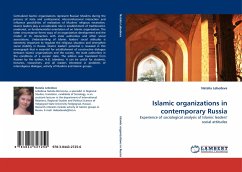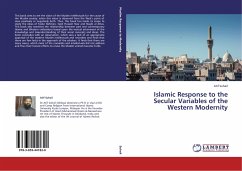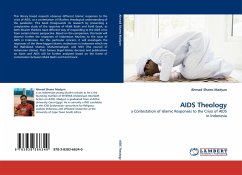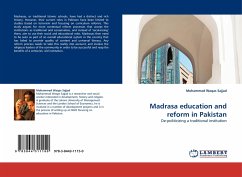
Madrasa education and reform in Pakistan
De-politicizing a traditional institution
Versandkostenfrei!
Versandfertig in 6-10 Tagen
32,99 €
inkl. MwSt.

PAYBACK Punkte
16 °P sammeln!
Madrasas, or traditional Islamic schools, have had a distinct and rich history. However, their current roles in Pakistan have been limited to studies based on terrorism and focusing on curriculum reforms. This study argues for more contextual reform processes that accept the institutions as traditional and conservative, and instead of 'secularizing' them, aim to use their social and educational roles. Madrasas then need to be seen as part of an overall educational system in the country that has failed to provide quality of content and universal literacy. Any reform process needs to take this r...
Madrasas, or traditional Islamic schools, have had a distinct and rich history. However, their current roles in Pakistan have been limited to studies based on terrorism and focusing on curriculum reforms. This study argues for more contextual reform processes that accept the institutions as traditional and conservative, and instead of 'secularizing' them, aim to use their social and educational roles. Madrasas then need to be seen as part of an overall educational system in the country that has failed to provide quality of content and universal literacy. Any reform process needs to take this reality into account, and involve the religious leaders of the community in order to be successful and reap the benefits of a centuries- old institution.



